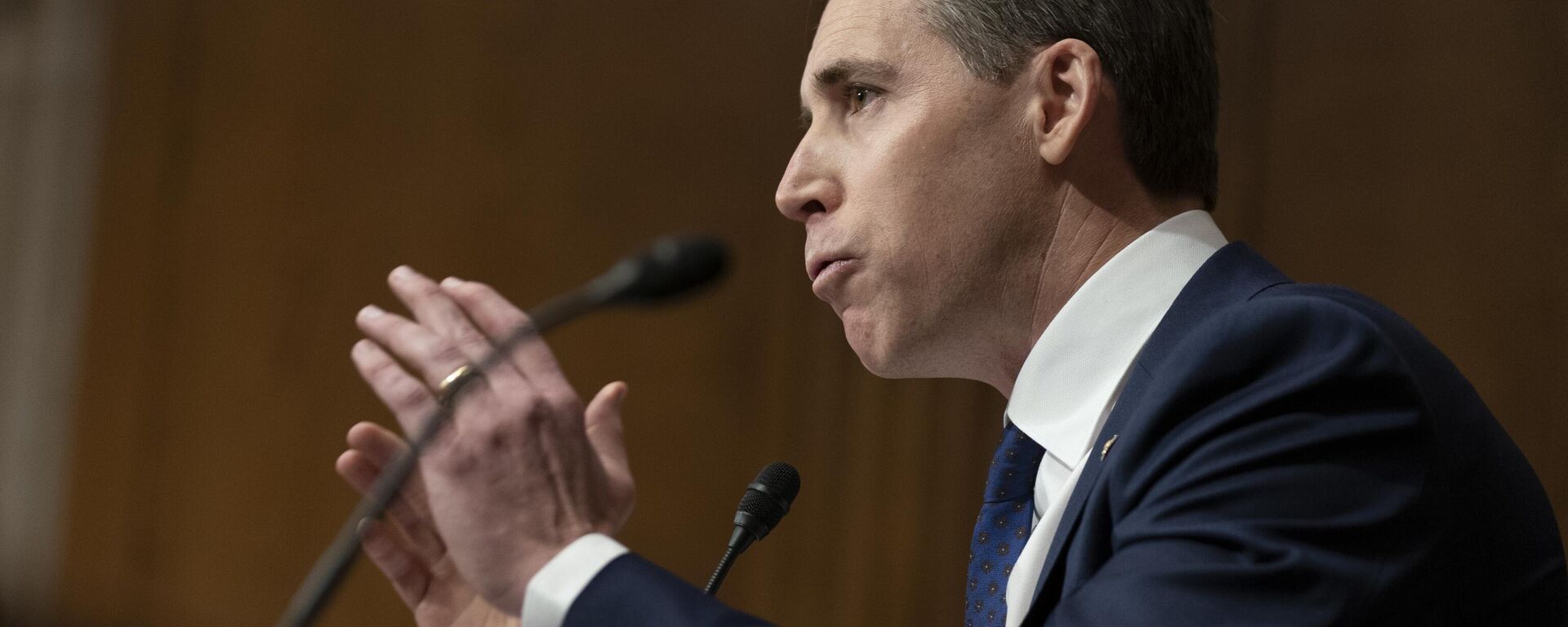Chinese Officials Stress Priority on Supporting Technology Innovation to Counter US Containment

© AP Photo / Vincent Yu
Subscribe
China's technology innovation and its investment in research and development remains on a path of rapid growth, and the country will continue prioritizing support for innovation, Finance Minister Liu Kun said in a keynote speech delivered at the opening session of the China Development Forum (CDF) held in Beijing during the weekend.
The comment came after a US congressional hearing on TikTok on Friday, which added to the flurry of Washington's "witch-hunting" moves against Chinese high-tech firms that analysts said laid bare the US' desperation to preserve its technology supremacy amid heated global competition.
Against the backdrop of the US restrictive measures, observers said the Chinese official's comment mapped out a clear blueprint of China's technological development path, with the whole-of-society system advantage being highlighted as playing a critical role in mobilizing resources and leading to industrial progress.
Walking this path, China will consolidate its rising advantage in sectors such as artificial intelligence and algorithm, as represented by TikTok, while major breakthroughs could also be anticipated in such sectors as semiconductor chips in the longer term, observers said.
The Chinese official vowed at the forum to scale up investment and scope of supporting tech innovation, improve management efficiency, promote the role of enterprises as the source of innovation and strengthen the deep integration of innovation and industrial chains.
"China will continue to putting the focus of economic development on the real economy, implement and improve fiscal and tax support policies, promote the transformation and upgrade of traditional sectors, and accelerate the development of strategic emerging industries," Liu said.
Zheng Shanjie, head of the National Development and Reform Commission, China's top economic planner, said at the CDF that China ranks No 11 among the 132 economies featured in the Global Innovation Index, and the country has entered the group of innovative countries with key technological results continuing to spring up.
Xiang Ligang, director-general of the Beijing-based Information Consumption Alliance, told the Global Times on Sunday that the officials' remarks show that the central government has formed a "sober, clear understanding" of the relentless US crackdown against any firms with a Chinese background and has been going "down-to-earth" in driving China's home innovation.
The unilateral US "decoupling" attempt has brought growing uncertainty and geopolitical pressures for Chinese firms. Given that, "national power or the government should take center stage and play an escort role for firms", Ma Jihua, a veteran tech analyst, told the Global Times on Sunday.
Immediately after the roughly five-hour TikTok Congressional hearing on Friday, Chinese Foreign Ministry spokesperson Mao Ning denounced it, saying the US is adopting the presumption of guilt and engaging in an unreasonable crackdown against TikTok without any proof.
"We noted that some US lawmaker has said that seeking a TikTok ban is a 'xenophobic witch hunt'," she said, urging the US to stop its unreasonable crackdown on foreign firms and provide an open, fair and non-discriminatory environment for other countries' firms.
Liu's words also indicated that China is going to leverage the "whole of society" system to make its science and technology sector stronger, according to Ma.
"But this time it is different: In the past, the state offered money and found the right people for the jobs, but now the state will play a coordinating role, to give play to the power of society such as private firms, which make up the most innovative group," Ma explained.
The way of the country's support for innovation is also changing, to make sure that national funds will only flow to the firms that have made genuine technology breakthroughs, Ma added.
In 2014, China has set up a chip investment fund known as the National Integrated Circuit Industry Investment Fund Co, as part of ongoing efforts to support local semiconductor industry development. Xiang said such a fund will be replicated in other strategic high-tech sectors, so as to guide more capital and private companies to make resources inputs.
In March, China has restructured the Science and Technology Ministry to better allocate resources to overcome challenges in cutting-edge technologies, with the goal of moving faster toward greater self-reliance in science and technology.
"The TikTok saga in the US is a vivid display of China's tech prowess. Step by step, we could expect more breakthroughs in strategic industries such as microchips, although it may take longer time," Xiang said.
Regardless of US' nefarious moves, industry insiders voiced confidence in the irresistible trend of China's technological progress.
China's leading memory chipmaker Yangtze Memory Technologies Co, which was put into the US blacklist in December, said at a forum last week that the company sees improved global market demand this year as push for innovation continues, the South China Morning Post reported.
This article originally appeared on the Global Times website.


